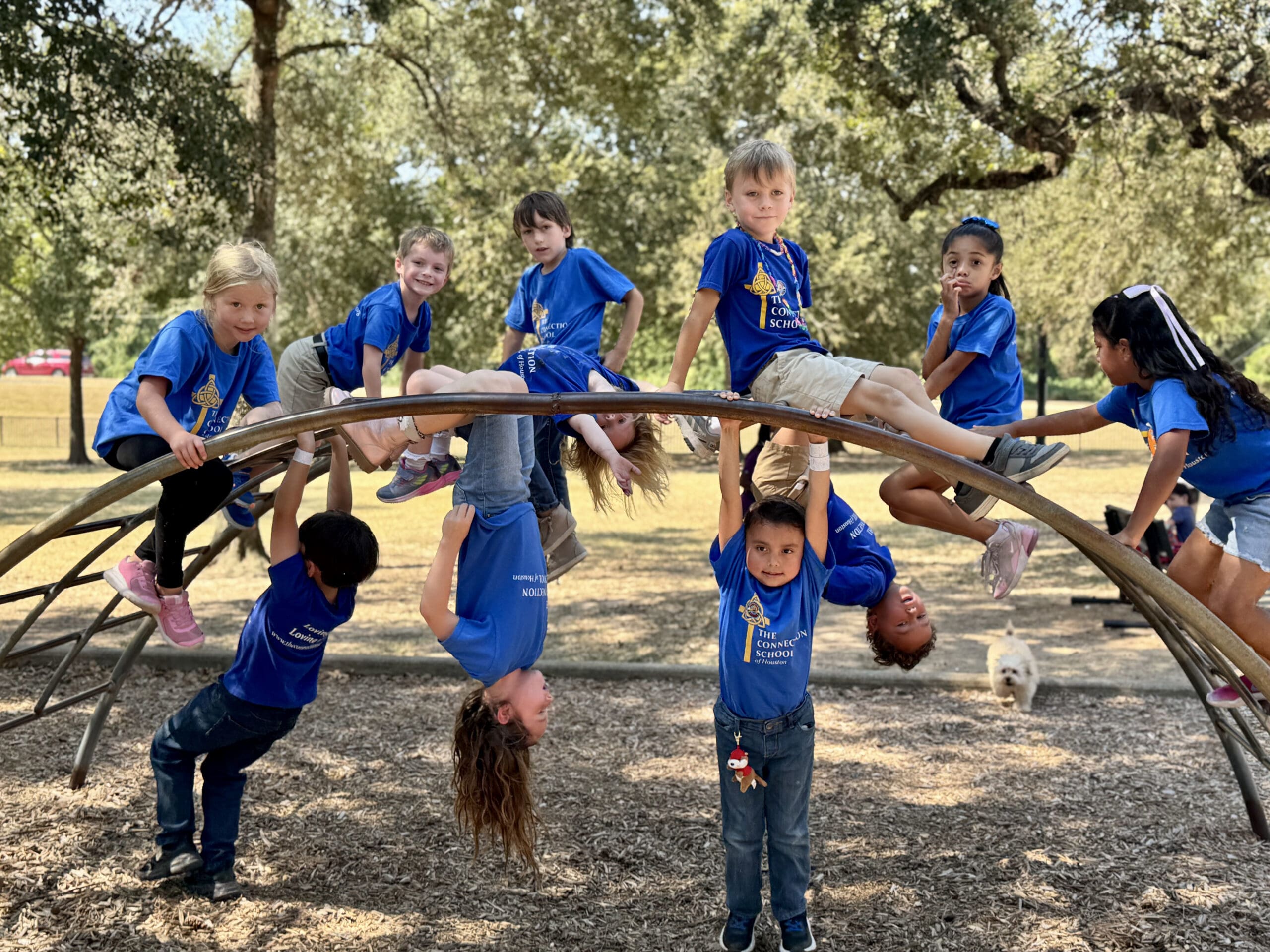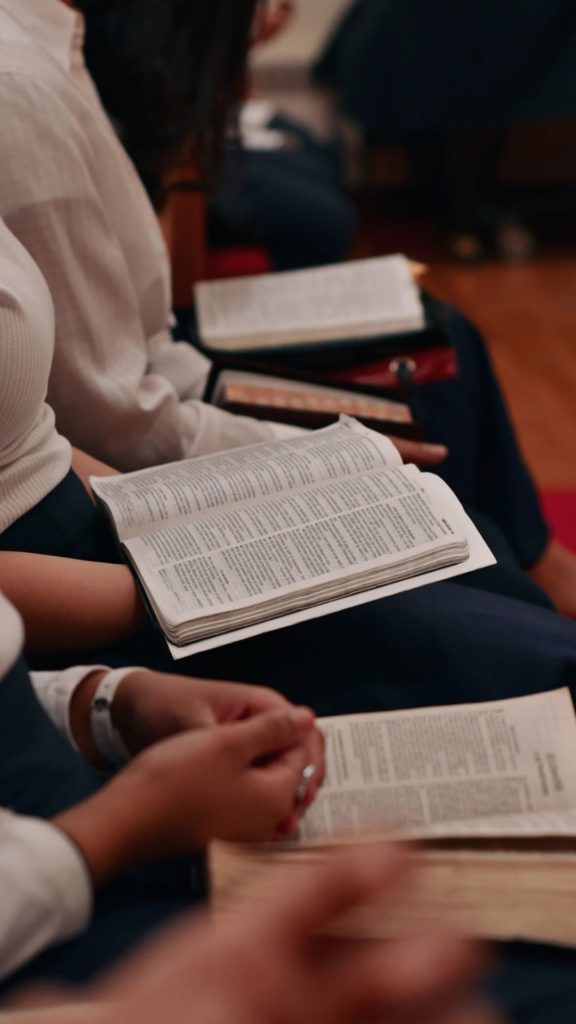Mission & Values
The Connection School of Houston is a Christian community committed to discipling children to love God with all of their hearts, souls, and minds and to love others as themselves.

TCS Mission
The Connection School of Houston is a Christian community committed to discipling children to love God with all of their hearts, souls, and minds and to love others as themselves.
TCS is founded on Jesus’ words from the Gospel of Matthew:
“Jesus replied: ‘Love the Lord your God with all your heart and with all your soul and with all your mind.’ This is the first and greatest commandment. And the second is like it: ‘Love your neighbor as yourself.’ All the Law and the Prophets hang on these two commandments.”
Matthew 22:37-40
Our Namesake
The school name emphasizes the relational aspects of Christian education:
- between Christ and his church, to whom he reveals truth and grants understanding,
- between those within the community of believers, whose role it is to make disciples of Christ by teaching all that Jesus said and did,
- between our heart, soul, mind, and body, representing the unity of our faculties in our entire devotion to God, and
- between ourselves and others, challenging us to apply the things we learn to our relationships with others.
Statement of Faith
The Connection School of Houston is an interdenominational Christian school. We maintain the following fundamental Christian beliefs in carrying out our mission:
- We believe the Bible to be inspired, the only infallible, authoritative, inerrant Word of God (2 Timothy 3:16, 2 Peter 1:21).
- We believe that there is one God, eternally existent in three persons – Father, Son, and Holy Spirit (Genesis 1:1, Matthew 28:19, John 10:30).
- We believe in the deity of Christ (John 10:33), His virgin birth (Isaiah 7:14, Matthew 1:23, Luke 1:35), His sinless life (Hebrews 4:15, 7:26), His miracles (John 2:11), His vicarious and atoning death (1 Corinthians 15:3, Ephesians 1:7, Hebrews 2:9), His resurrection (John 11:25, 1 Corinthians 15:4), His ascension to the right hand of the Father (Mark 16:19), and His personal return in power and glory (Acts 1:11, Revelation 19:11).
- We believe in the absolute necessity of regeneration by the Holy Spirit for salvation because of the exceeding sinfulness of human nature, and that people are justified on the single ground of faith in the shed blood of Christ, and that only by God’s grace and through faith are we saved (John 3:16-21; John 5:24;Romans 3:23, 5:8, 9; Ephesians 2:8- 10; Titus 3:5).
- We believe in the resurrection of both the saved and lost; they that are saved unto the resurrection of life, and they that are lost unto the resurrection of damnation (John 5:28, 29).
- We believe in the spiritual unity of believers in our Lord Jesus Christ (Romans 8:9; 1 Corinthians 12:12, 13; Galatians 3:26-28).
- We believe in the present ministry of the Holy Spirit by whose indwelling the Christian is enabled to live a godly life (Romans 8:13, 14; 1 Corinthians 3:16, 6:19, 20; Ephesians 4:30, 5:18).
The Connection School also adheres to the following affirmations:
- We affirm that all human life is sacred and created by God in His image. Human life is of inestimable worth in all its dimensions, including pre-born babies, the aged, the physically or mentally challenged, and every other stage or condition from conception through natural death. We are therefore called to defend, protect, and value all human life. (Ps 139.)
- We affirm that the term marriage has only one meaning: the uniting of one man and one woman in a single, exclusive union, as delineated in Scripture (Genesis 2:18–25). We affirm that God intends sexual intimacy to occur only between a man and a woman who are married to each other (1 Corinthians 6:18, 7:2–5; Hebrews 13:4). We affirm that God’s command is that there be no sexual intimacy outside of or apart from marriage between a man and a woman.
- We affirm that God wonderfully foreordained and immutably created each person as either male or female in conformity with their biological sex. These two distinct yet complementary genders together reflect the image and nature of God (Genesis 1:26–27).
The Connection School is an autonomous non-denominational Christian organization and is not affiliated with any specific Christian denomination, church, or congregation.





